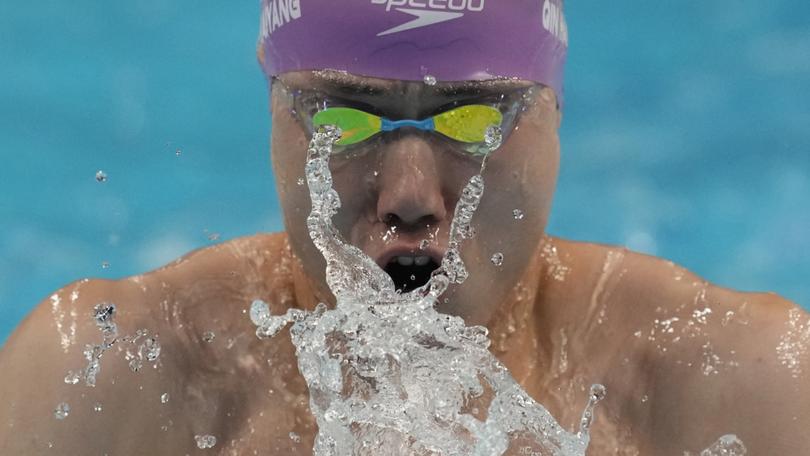Tainted Chinese swimmers return to Olympic pool
A war has broken out amid a build-up to an Olympic Games like no other

Even the boss can’t promise it will be clean.
“You will never eliminate doping from the sporting landscape,” declared World Anti-Doping Agency president Witold Banka on the eve of Paris 2024’s opening ceremony. “You will always find someone who wants to cheat.”
Banka may well have had a point, but he could also be forgiven for having his mind elsewhere. In Paris, a war has broken out amid a build-up to an Olympic Games like no other.
Sign up to The Nightly's newsletters.
Get the first look at the digital newspaper, curated daily stories and breaking headlines delivered to your inbox.
By continuing you agree to our Terms and Privacy Policy.At the heart of this flare-up is the scandal revealed in April that 23 Chinese swimmers tested positive for a banned drug, trimetazidine, months before the Tokyo Olympics in 2021.
The group, which collected three golds and, shockingly, of which 11 will compete in Paris — including Qin Haiyang, the biggest threat to Australian Zac Stubblety-Cook defending his 200m breaststroke title — avoided sanction when it was accepted the tests were down to environmental contamination via a hotel kitchen.
At an extraordinary press conference on Thursday, WADA chiefs were forced to defend themselves. At one point, a German reporter told them Chinese athletes had not been interviewed outside of China and that they had not checked the latest revelations by a German broadcaster ARD which suggested the group in question were not staying at the same hotel.
This week emerged the IOC had threatened to take the 2034 Winter Games away from Salt Lake City should the FBI continue their investigation into the alleged cover-up of doping by the Chinese swimmers.
Olympic chiefs confirmed the Utah city would host the event, but warned they would pull the plug “if World Anti-Doping is not fully respected or if the application of the anti-doping code is hindered or undermined”. Indeed, a clause was added to the contract, just to make it clear, demanding local organisers attempt to end the probe or risk losing the Games.
WADA chiefs stuck to their script yesterday. No evidence was found that the official conclusion regarding the Chinese swimmers’ tests was not the likeliest. “There’s a difference between evidence and hearsay,” director-general Olivier Niggli said.
“We never said we wouldn’t reopen or look at new evidence if there is anything. We have been in contact with ARD more than one time in last three weeks.”
His remarks prompted an incredulous response from ARD’s reporter in the room, who accused Niggli of “lies”.
There was then the added colour of two journalists from Chinese media, who appeared to be reading from a script when they complained about the high levels of testing for Chinese swimmers and asked why Americans only took urine tests a month before the competition started.
American seven-time gold medallist Caeleb Dressel piled in at a World Aquatics event ahead of the swimming that starts tomorrow.
Asked if he had faith in the authorities, he said: ”No. I don’t think they have given enough evidence to support how this case was handled.”
Dressel’s comments echoed those of compatriot Katie Ledecky, herself a seven-time Olympic swimming champion, who had said athletes “want transparency”.
“They want further answers to the questions that remain,” she said. “We want to see some change for the future so you don’t have to ask us that question.”
Stubblety-Cook, who lost his world record to Qin, was asked for his view on the probe.
“It feels like it’s failed,” he said. “I absolutely believe in clean sport and I hope this is a clean Games. It’s disappointing to hear about the positive tests of 23 athletes; in some cases multiple positives. Finding out you are racing someone who was one of those athletes is disappointing.”
The 25-year-old indicated he may refuse to step on the podium if Qin wins gold and Stubblety-Cook earns silver or bronze.

